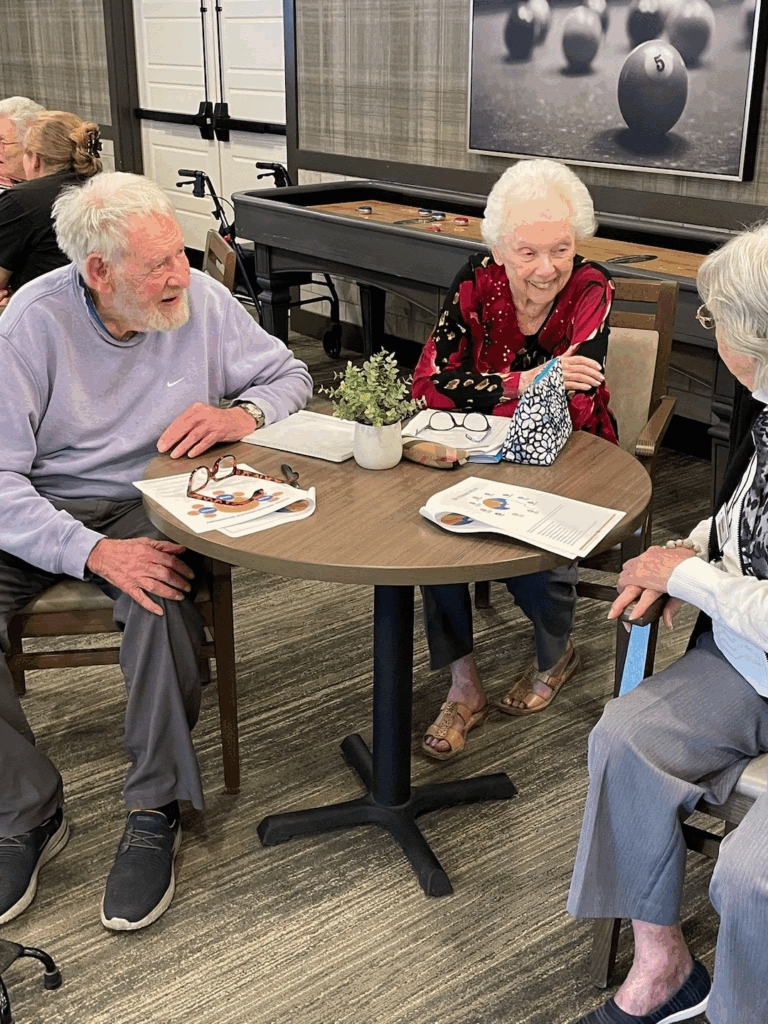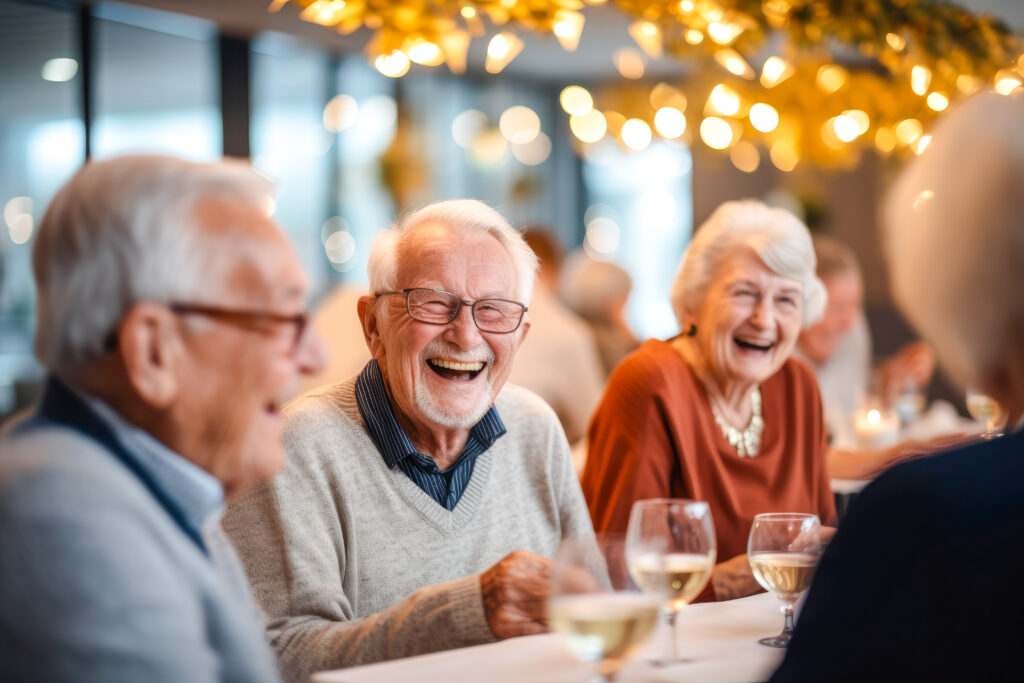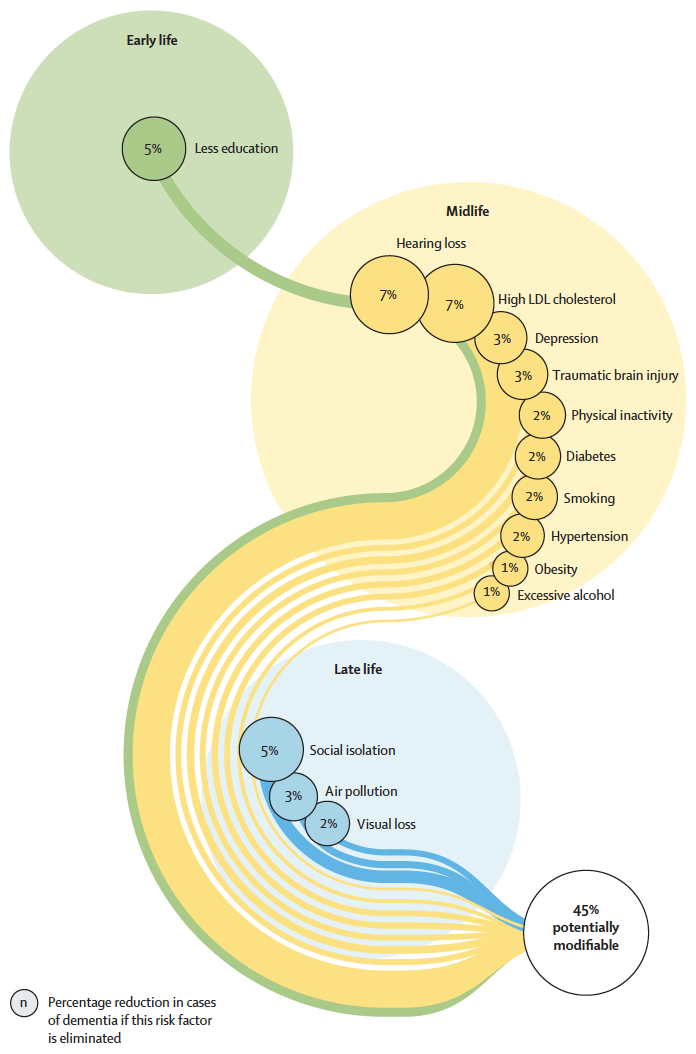
3 Reasons We All Can’t Remember Names – And 3 Easy Ways We Can
After so much time apart, it’s a relief to return to in-person gatherings, even if they are smaller and perhaps include a bit of distancing and masks. We are, most importantly, together.
However, some – including many of your residents – may be a bit nervous about those get-togethers, especially as the holidays approach. It has been a while since anyone has met new folks, let alone several at once. Everyone’s social skills might be a bit rusty. And for older adults who are worried they can’t remember as well as they used to, or who are just anxious about their thinking in general after so much time in isolation, your community’s social plans may be a source of mixed emotions.
Luckily, everyone can rev up our recall for names, no matter our age or how much name dropping plagues us. Here’s some of the science behind why we forget names, and some simple ways everyone in your community can train their brains and remember the people they meet this holiday season.
3 Reasons We Can’t Remember Names
Did you know that forgetting names has always been the number one memory complaint of adult Americans? Let’s take a look at why names are so hard to remember.
Life’s distracting. When we meet someone, we aren’t necessarily paying attention when we hear their name. Our thoughts wander, our phones buzz. Since most names take just seconds to say (try having residents time how long it takes to say their names), if during that introduction we start to wonder what’s for dinner, we have lost our chance to learn the name. For most of us, it’s not that we forget the name, but that we don’t get it from the start! But this is an easy fix. If we focus on the name when meeting someone, we are much more likely to learn and retain it.
It’s the choices we make. Many of the lifestyle decisions we make each day can make it harder for us to remember. Things ranging from how much sleep we get to how much we exercise, what medications we take or whether we have a cocktail all can impact how effectively we learn information we want to retain, like a name. Modifying our lifestyle in ways that support cognitive fitness can help us remember everything, including names, better. Try highlighting the value of your wellness offerings as a key way residents can also boost their memory.
We don’t strategize. Memory strategies are the most effective ways we can remember better, yet few people know how to use them. But we all should. Memory strategies have been proven to boost our recall by up to a whopping 33%. How do they work? They get us to pay closer attention to the information and make it more meaningful to us. And they don’t have to be complex or difficult to master to work. We just have to bring some strategy to our name game!
3 Easy Strategies We Can Use to Boost our Name Power
Here are 3 always popular strategies from our Total Brain Health training programs that anyone can do. Teach these strategies to your community members to help everyone remember names better. Try adding 5 minutes of name strategy training to a fitness class or invite community members to practice these methods on each other’s names using a worksheet or challenge. Easy to learn and use, these techniques just take a bit of practice to make a habit whenever we are learning a new name.
Repetition Strategy. Get into the routine of repeating someone’s name when you meet them. We can repeat the name aloud or to ourselves. Repeating the name gives us more opportunity to learn the name by increasing our exposure to the information. And it is simple to do!
Connection Strategy. Often when we hear a name, it reminds us of someone or something else we know already. Piggyback onto that knowledge by connecting the new name with that information. Meeting Susan? Connect her name to a Susan you know or that flower, black-eyed Susan. Doing so gives us a real leg up in retaining that name.
Moviemaking Strategy. Beloved by creative types, this strategy asks us to make a short video in our “mind’s eye” to help us remember the name. The additive power of visual imagery and motion can give a real boost to our recall. Introduced to Frank Hill? Imagine a line of frankfurters marching over a hill.



